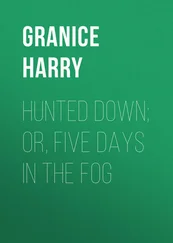Günther Bach - Arrows In The Fog
Здесь есть возможность читать онлайн «Günther Bach - Arrows In The Fog» — ознакомительный отрывок электронной книги совершенно бесплатно, а после прочтения отрывка купить полную версию. В некоторых случаях можно слушать аудио, скачать через торрент в формате fb2 и присутствует краткое содержание. Жанр: unrecognised, на английском языке. Описание произведения, (предисловие) а так же отзывы посетителей доступны на портале библиотеки ЛибКат.
- Название:Arrows In The Fog
- Автор:
- Жанр:
- Год:неизвестен
- ISBN:нет данных
- Рейтинг книги:5 / 5. Голосов: 1
-
Избранное:Добавить в избранное
- Отзывы:
-
Ваша оценка:
- 100
- 1
- 2
- 3
- 4
- 5
Arrows In The Fog: краткое содержание, описание и аннотация
Предлагаем к чтению аннотацию, описание, краткое содержание или предисловие (зависит от того, что написал сам автор книги «Arrows In The Fog»). Если вы не нашли необходимую информацию о книге — напишите в комментариях, мы постараемся отыскать её.
something that you merely know is there?
Rolf thinks that he hears Erhard’s voice saying:
“You must learn to see the invisible clearly!”
In this sequel of the archery novel «The horn of the hare» the story about the two friends continues.
15 years later: Germany is no longer divided and everything has changed, also Bärgers life and his shooting with the bow and arrow.
Arrows In The Fog — читать онлайн ознакомительный отрывок
Ниже представлен текст книги, разбитый по страницам. Система сохранения места последней прочитанной страницы, позволяет с удобством читать онлайн бесплатно книгу «Arrows In The Fog», без необходимости каждый раз заново искать на чём Вы остановились. Поставьте закладку, и сможете в любой момент перейти на страницу, на которой закончили чтение.
Интервал:
Закладка:
After that, Bärger concentrated on correct pronunciation and the complicated rituals of introduction, greeting, and departure in combination with the appropriate bows for each occasion.
Today’s lesson concerned shopping in Japan but, like all the others, it began with a quiz. Its tempo and results reminded him unpleasantly of his schooldays from long ago. According to everything that he had heard and read, it was the same in Japan. Was he simply to old for this sort of class? But he had paid for the privilege of being treated as a schoolboy and presumably the method really was effective. Even so, he didn’t like it, and he cared even less for the superior attitude and mockery of the high school girls, who openly made fun of the awkward pronunciation of their older classmates.
What really gave him pause was his obvious inability to learn the twenty-three symbols of hiragana , the Japanese syllabic script. This bothered him particularly. He had always believed that he had a particularly good visual memory, but this task was simply too much for it. Bärger felt that he was even beginning to develop a dislike for the symbols. He found it absurd that a people who unconditionally recognized the value of a modern, technically oriented, and extremely rational working environment, would at the same time use three different scripts in parallel and mix them together.
When he asked about it, the teacher, Yoshiko-San, had answered that the origin of the hiragana symbols lay in a further development of the Chinese script symbols as a phonetic, syllabic script. That helped explain the shapes of the symbols, which had often seemed so bizarre to him, but it did nothing to make learning them any easier.
On the other hand, he found it remarkable that he had a much better grasp of the true Chinese script – the kanji . Although he had never really wanted to learn the thousands of graphic symbols that had originated as simplified pictures, it had been possible for him to learn a few of the basic forms quickly. However, that was long before his efforts with the Japanese language and was probably due to his intense interest in the spirit and technique of Chinese ink painting at that time. He took relaxed pleasure in adding the written symbols to his ink pictures, and he also considered it an agreeable calligraphic exercise. No, he liked the classic forms of kanji , but he wasn’t able to do anything with the simplified script derived, from it.
“Bärger-San.”
The teacher’s voice brought him back to the present. After a last glace at his exercise notebook, he stood up, went to the chalkboard, and without hesitation wrote the required sentence on the green surface. Even as he dusted off his hands and returned to his seat, he knew that by tomorrow he would have forgotten it all again.
The lesson continued at the rapid pace that Yoshiko-San thought proper. Bärger admitted to himself that he hadn’t quit only because he didn’t want to confess in front of the schoolgirls that this kind of instruction was beyond him.
The lesson ended precisely at the break. He made a note of the homework assignment in his loose-leaf binder, intending to deal with it the next morning.
“No more school work, Bärger-San!”
Yoshiko stood smiling in front of him and held out her hand. It was a minute before Bärger understood. Then he stood up, bowed, and grasped her hand.
“I wish you a pleasant trip to Japan,” said Yoshiko formally. “You will see the autumn leaves in the woods of Kyoto”. It sounded a little wistful. But then she said, smiling again, “Your bow was too deep for a simple teacher, Bärger-San. I wish you a safe return.” Then she quickly left the classroom.
On the way to the tram stop, Bärger thought about his approaching trip. He had studied the guidebook thoroughly, and had discovered that the proposed route hit every culturally significant spot in central and southern Japan. He was a little concerned whether he would have the time to see them properly.
He recalled a trip to Cyprus in November two years ago; the huge empty hotels along the beach, the dried vegetation, and the smell of the burning rubbish heaps at the edge of the city. In particular, he remembered the disaster of a side excursion to Cairo from Cyprus, a two-day tour by ship to Alexandria offered by a local shipping firm. The luxury liner sailed there and back at night, arriving in Alexandria in the morning. From there, they boarded the waiting buses for a non-stop, six-hour trip to Cairo along a four-lane highway through desolate country. Most of the way the route ran parallel to the Suez Canal, with only the superstructure or funnels of an occasional passing ship visible above the banks of the canal.
Cairo proved to be a large city with endless suburbs. They went right on through to Giza. It was a shock to him. He had seen a large number of pictures of the pyramids and the sphinx in various books and magazines. He had felt their majestic calm and impressive size and was captivated by the magic loneliness of these ancient monuments, but the reality proved to be quite different on their arrival in Giza. As soon as they had come to a halt in a cloud of yellow dust, a mob of clamoring Arabs surrounded the bus doors. Gesticulating wildly, they held out postcards, plastic camels, scarabs, and small plaster figurines in their hands. They ran after the people getting off, grabbed them by the sleeves, and tried to shove the souvenirs into their pockets in order to force a sale. A half dozen of them sat silently on arrogant-looking camels a few meters away and persistently edged their way in front of any tourist with a camera when he tried to take a picture of the pyramids. The base of Cheops’ Great Pyramid seemed to be surrounded by hundreds of these vendors on foot; some had climbed a third of the way up this gigantic ruin.
He swallowed, remembering his boundless disappointment at the time. At first he had stayed seated in the bus, unsure as to whether he should get out. But then when a turbaned salesman struck him energetically on the knee with a plastic camel, - he wanted “ten pound” for it - he was overpowered by the humor of the situation and laughed. He laughed until he had tears in his eyes.
That had been his unplanned trip to Egypt, which he recognized too late as an attempt by an idle shipping company to make money during the off-season. The real joke of the tour was that only twenty minutes was allotted to visit the pyramids and twenty for the Sphinx; then they were conducted into the souvenir shops, where considerably more time was devoted to ornaments and papyri.
At least I’ve been warned, thought Bärger. It can only be worse in Japan as far as the number of people are concerned. But then, he had also read that the Japanese were very different; polite, self-contained, gentle and, above all, full of respect for every aspect of their own cultural heritage. Perhaps it is the fault of that Cyprus trip, thought Bärger, that I can’t yet really look forward to this trip to Japan.
The lights of the tram came into sight beyond the crossroad at the end of the street. On time to the minute, thought Bärger, after glancing at his watch. He climbed into the last car, sat down next to the exit, and took his textbook out of his bag. The chart of hiragana symbols continued to irritate him. There had to be a trick to it, some hidden order that he hadn’t yet discovered.
When a group of noisy youngsters got on at the next stop, Bärger was so deeply involved in his problem that he didn’t even notice. He only looked up angrily when a black boot with white laces kicked the side of his foot. It was suddenly quiet in the tramcar and, without looking around, Bärger realized that he was alone with a grinning bunch which had surrounded him.
Читать дальшеИнтервал:
Закладка:
Похожие книги на «Arrows In The Fog»
Представляем Вашему вниманию похожие книги на «Arrows In The Fog» списком для выбора. Мы отобрали схожую по названию и смыслу литературу в надежде предоставить читателям больше вариантов отыскать новые, интересные, ещё непрочитанные произведения.
Обсуждение, отзывы о книге «Arrows In The Fog» и просто собственные мнения читателей. Оставьте ваши комментарии, напишите, что Вы думаете о произведении, его смысле или главных героях. Укажите что конкретно понравилось, а что нет, и почему Вы так считаете.









